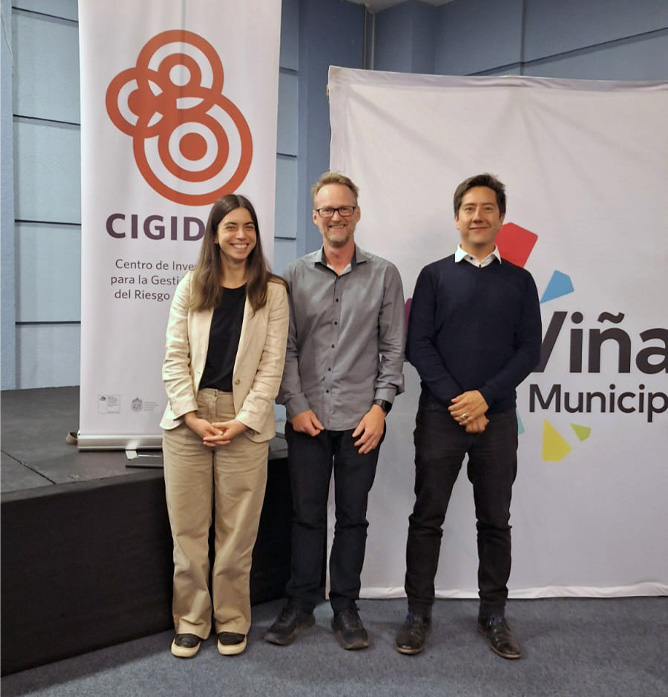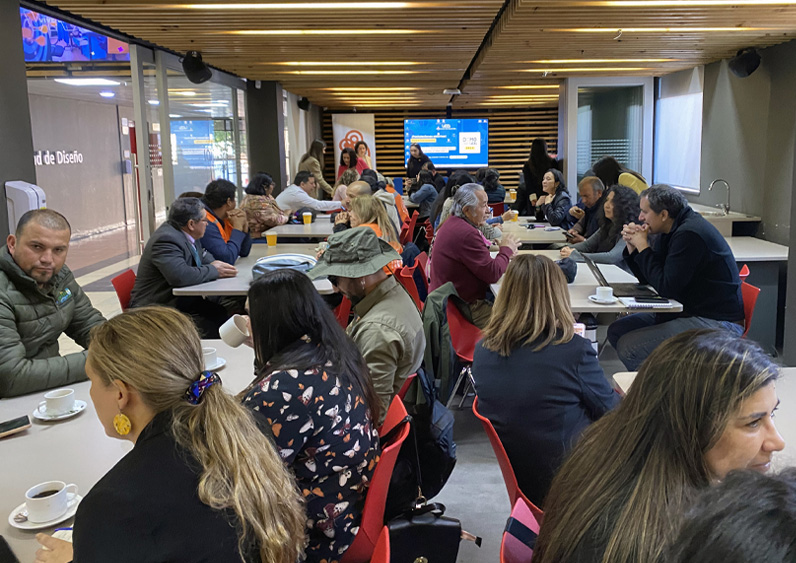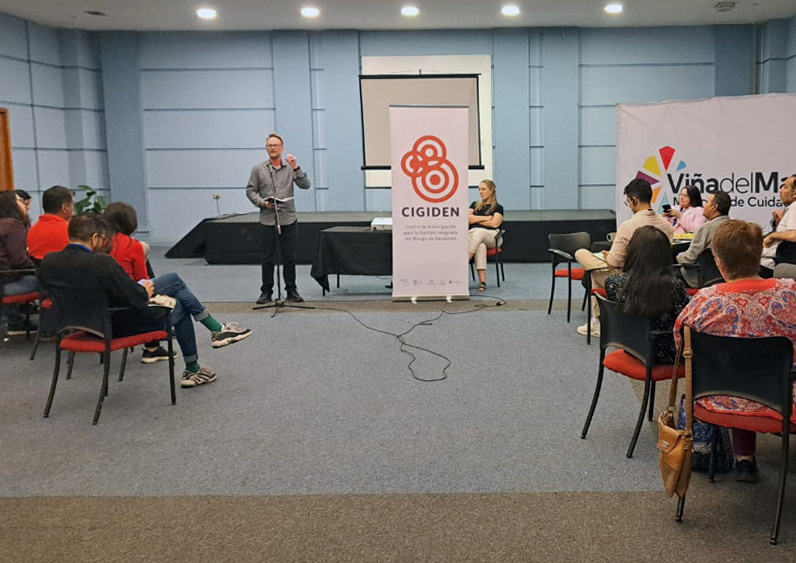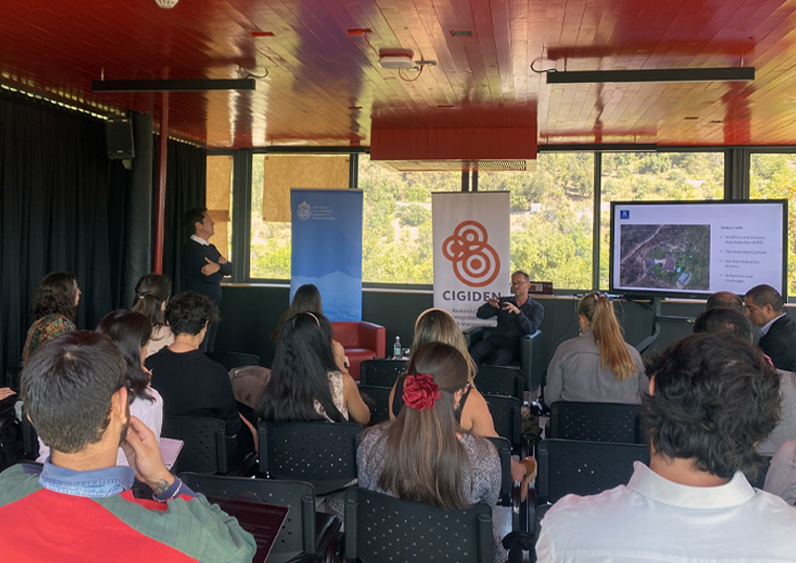Professor Alan March shared Australian experiences and knowledge about disaster and wildfire risk management in the built environment in a series of public lectures and workshops in Chile, contrasting it with the Chilean risk management context and challenges.
In November 2024, Professor Alan March from the University of Melbourne visited Viña del Mar, Santiago and Concepción, Chile’s 3 largest cities, to share his experience and knowledge about disaster risk reduction in the built environment, with a special focus on wildfires. His visit was part of the dissemination activities of the research projects: ‘Wildfire risk management actions in the built environment: barriers and facilitators for their implementation and maintenance in Chile’ (ANID/FONDECYT/11230156) led by Dr Gonzalez-Mathiesen and ‘An integrative framework for tsunami vertical-evacuation planning’ (ANID/FONDECYT/1210184) led by Dr León. The tour was organised by the Universidad del Desarrollo, Universidad Técnica Federico Santa María and Centro de Investigación para la Gestión Integrada del Riesgo de Desastres (CIGIDEN) (ANID/FONDAP/1523A0009)).
We have known and worked with Professor March for a long time. He was our supervisor during our PhD studies at the University of Melbourne’s School of Design and we have continued to collaborate on diverse academic contexts across our countries, including the Wildfire Exchange1 project where he is Co-Director. The dissemination activities of our ongoing research projects were a great opportunity to invite Professor March to Chile to continue to develop and share knowledge and experiences about disaster risk management in the built environment.

Dr Constanza Gonzalez-Mathiesen, Professor Alan March and Dr Dr Jorge León during the workshops.
Image: CIGIDEN communications team – Gabriela Cortés
The purpose of the tour was to gain insights into the ways Australia addresses disasters and wildfires and the role urban planning can have in risk reduction and then to contrast them in the Chilean context and the challenges the country faces in risk management. This is a critical issue for Chile as disasters, especially wildfires, are more frequent and devastating. For example, during 2023–24, a wildfire affected populated areas of the Valparaíso region, destroying nearly 15,500 homes and causing more than 130 fatalities.
This tour included public lectures and workshops where Professor March was a keynote speaker and facilitator. Attendees included academics, public officials, emergency practitioners, students and community members from areas affected by fires as well people working in prevention with the Red de Prevención Comunitaria. More than 300 people participated in these events. The activities included:
- in Viña del Mar, a workshop about tsunami vertical evacuation and a workshop for community leaders and public actors on reconstruction and bushfire prevention
- in Santiago, Professor March was the keynote speaker of the colloquium ‘Challenges of wildfire reduction and prevention’ and was invited to join the examination board for the final defense of Dr Sebastian Laclabere’s PhD thesis, ‘DIS-BORDER: Towards a comprehensive conception of the urban border as a space of articulation between informal city, natural environment and disaster risk’
- in Concepción, Professor March was the keynote speaker of the seminar ‘Towards Reducing the Risk of Forest Fires in Settlements, Experiences in Chile and Australia’ and at the workshop ‘Community Wildfire Prevention’.
We hope to continue, consolidate and expand the research networks between Chile and Australia as we believe there are valuable experiences and lessons to share. Access to information and collaborative approaches are key to disaster risk reduction as they provide a basis for informed action that contributes to the development of resilience. In this respect, Australia's contribution to research and service delivery is particularly significant as its disaster risk management systems have been established for a longer period than those in Chile.
Chile’s communities, researchers and practitioners are very interested in learning from Australia, especially about the approaches to wildfire risk reduction in the built environment. This is still an challenge for Chile and its urban planning systems. We believe there are great learning and research advancement opportunities, especially exploring ways to manage risk in existing settlements built with little or no consideration of risk. This is what Professor March calls ‘legacy issues’, considering the different development contexts and tools existing in each country.

Workshop in Concepción about community wildfire prevention.
Image: CIGIDEN communications team – Gabriela Cortés

Workshop in Viña del Mar about tsunami vertical evacuation.
Image: CIGIDEN communications team – Gabriela Cortés



